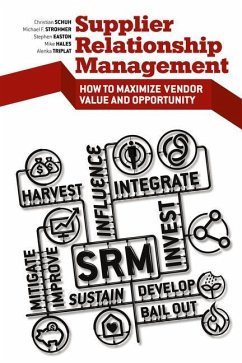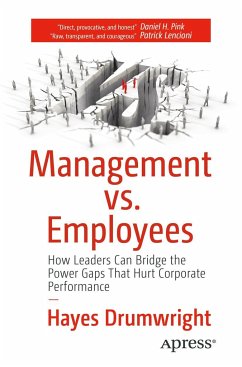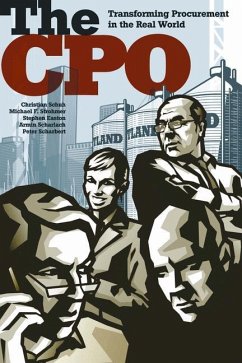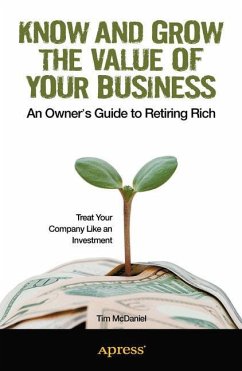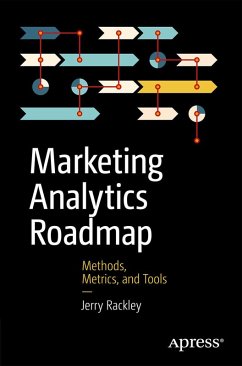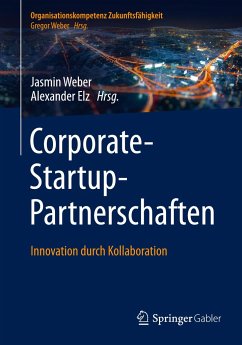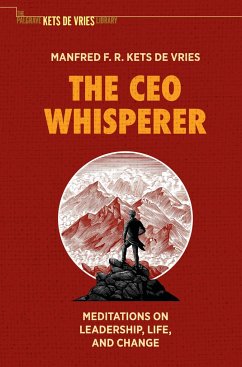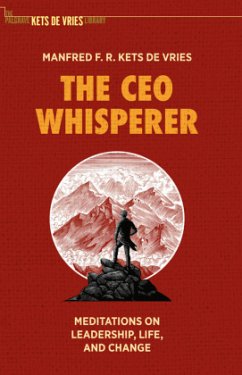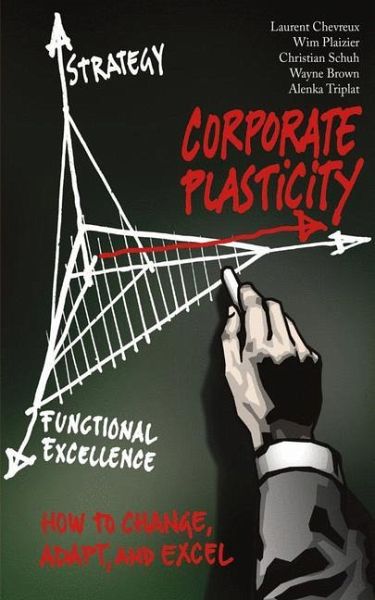
Corporate Plasticity
How to Change, Adapt, and Excel
Mitwirkender: Schuh, Christian; Brown, Wayne; Triplat, Alenka

PAYBACK Punkte
11 °P sammeln!
What do The Beatles, Apollo 13, the Roman military, a pack of wolves, and the very best companies in the world all have in common? Answer: Plasticity. They can change, adapt, and excel as the situation requires.In most organizations, strategy and functional excellence get the most attention. But even the best of either provides only limited long-term advantage. Highly effective organizations add Plasticity as a third dimension and rack up stellar breakthroughs again and again. It is the key ingredient that allows strategy and functional excellence to deliver value.As the authors show in Corpor...
What do The Beatles, Apollo 13, the Roman military, a pack of wolves, and the very best companies in the world all have in common? Answer: Plasticity. They can change, adapt, and excel as the situation requires.
In most organizations, strategy and functional excellence get the most attention. But even the best of either provides only limited long-term advantage. Highly effective organizations add Plasticity as a third dimension and rack up stellar breakthroughs again and again. It is the key ingredient that allows strategy and functional excellence to deliver value.
As the authors show in Corporate Plasticity: How to Change, Adapt, and Excel, Plasticity also enables great organizations to break down barriers and collaborate in the pursuit of a common objective, and to reconfigure or rewire themselves to face down challenges or reach ever-stronger competitive positions.
Through entertaining stories and astute analysis, this book demonstrates thatPlasticity spurs sports teams to become champions, companies to book record earnings, and artists to attain worldwide fame. You can use its principles adaptability, flexibility, fluid networks and roles, lofty goals, and innovation, among others to achieve operational excellence, tear down silos, and create more vibrant, creative enterprises. Your organization can become not just highly profitable and fun to work for, but an organization that can change the world.
Plasticity allows an organization to choose its own destiny, become versatile, and dare more than others. Its success lies in a set of abilities called the Magic 7:
Purpose: Your company must discover, select, and express what it is meant for.Focus: Your company must have the courage to ignore everything that is not in line with its purpose, and then see that purpose through.Culture: Your companymust create the conditions that allow people to work across boundaries and outside of predefined roles.Spirit: Yourcompany must inspire people to feel part of a cause that is bigger than they are.Networking: Your company must provide the means, freedom, and encouragement for people to nurture and grow their internal and external networks continuously.Knowledge: Your company must encourage experts to provide their knowledge and make it readily available to everyone who needs it.Leadership: Your company's leaders must model and personify the characteristics they want others to adopt.
Silo thinking? Poor collaboration? Weak earnings? Strategies that gain no traction? Corporate Plasticity: How to Change, Adapt, and Excel is the answer. It shows you how to cultivate each of the seven disciplines to infuse Plasticity in an organization. That along with razor-sharp strategy and crisp execution will unleash the power you need to reach both personal and corporate goals. You might even change the world.
In most organizations, strategy and functional excellence get the most attention. But even the best of either provides only limited long-term advantage. Highly effective organizations add Plasticity as a third dimension and rack up stellar breakthroughs again and again. It is the key ingredient that allows strategy and functional excellence to deliver value.
As the authors show in Corporate Plasticity: How to Change, Adapt, and Excel, Plasticity also enables great organizations to break down barriers and collaborate in the pursuit of a common objective, and to reconfigure or rewire themselves to face down challenges or reach ever-stronger competitive positions.
Through entertaining stories and astute analysis, this book demonstrates thatPlasticity spurs sports teams to become champions, companies to book record earnings, and artists to attain worldwide fame. You can use its principles adaptability, flexibility, fluid networks and roles, lofty goals, and innovation, among others to achieve operational excellence, tear down silos, and create more vibrant, creative enterprises. Your organization can become not just highly profitable and fun to work for, but an organization that can change the world.
Plasticity allows an organization to choose its own destiny, become versatile, and dare more than others. Its success lies in a set of abilities called the Magic 7:
Purpose: Your company must discover, select, and express what it is meant for.Focus: Your company must have the courage to ignore everything that is not in line with its purpose, and then see that purpose through.Culture: Your companymust create the conditions that allow people to work across boundaries and outside of predefined roles.Spirit: Yourcompany must inspire people to feel part of a cause that is bigger than they are.Networking: Your company must provide the means, freedom, and encouragement for people to nurture and grow their internal and external networks continuously.Knowledge: Your company must encourage experts to provide their knowledge and make it readily available to everyone who needs it.Leadership: Your company's leaders must model and personify the characteristics they want others to adopt.
Silo thinking? Poor collaboration? Weak earnings? Strategies that gain no traction? Corporate Plasticity: How to Change, Adapt, and Excel is the answer. It shows you how to cultivate each of the seven disciplines to infuse Plasticity in an organization. That along with razor-sharp strategy and crisp execution will unleash the power you need to reach both personal and corporate goals. You might even change the world.





